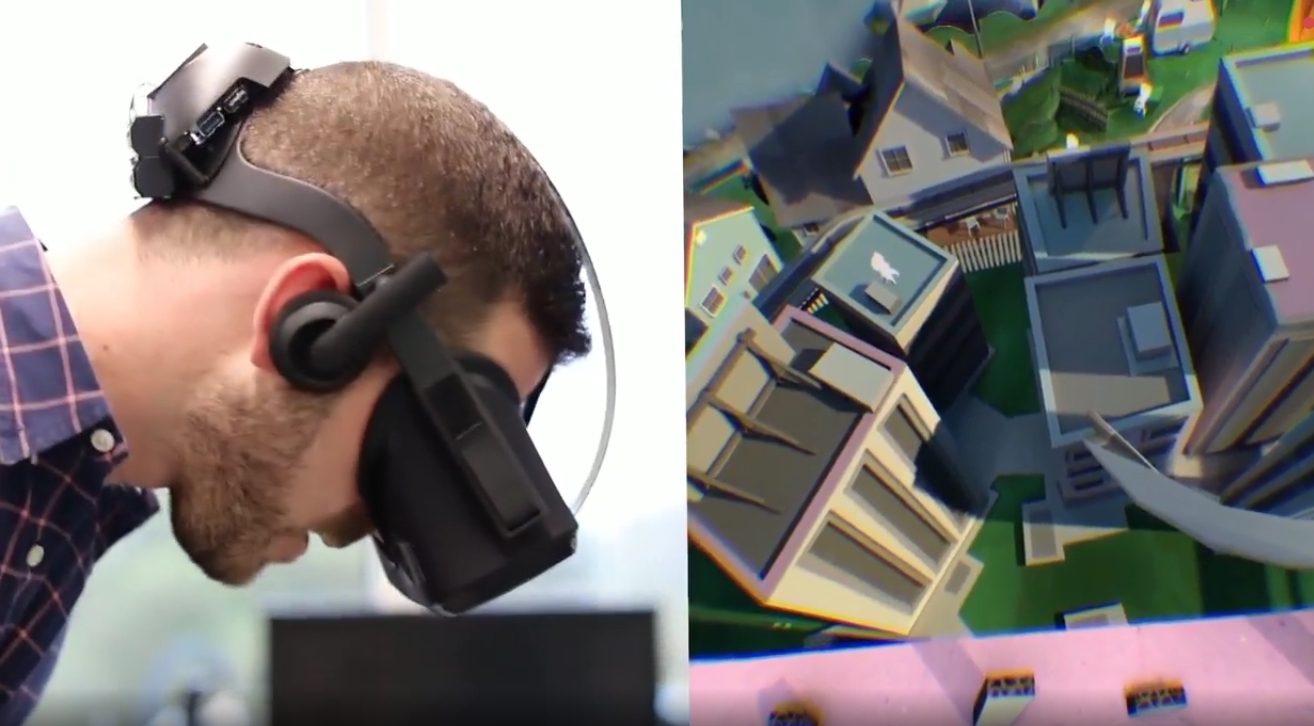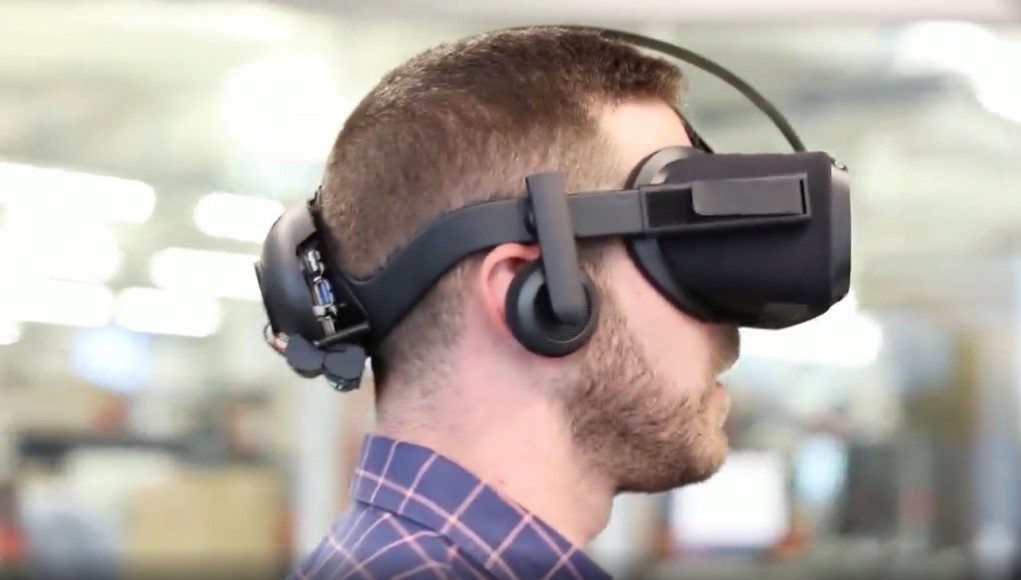Revealed today on stage at Oculus Connect, Mark Zuckerberg teased “the next phase of virtual reality,” an inside-out tracking solution that would allow a headset to go entirely without the need of an outside tracking tech like the Rift’s IR camera and Constellation tracking.
Update: Our hands-on with the prototype reveals the tech to be very impressive
Teasing a video showing a modified Rift, completely wireless with a additional module on the back, Zuckerberg maintains that the next step, between mobile solution Gear VR and cable-bound solution Rift that it will be “a stand alone virtual reality product that is high quality, that is affordable and that you can bring with out into the world.”
 Although there’s no product yet to speak of, Zuckerberg maintains “we’re working on it.”
Although there’s no product yet to speak of, Zuckerberg maintains “we’re working on it.”
This story is breaking. Check back for more news on Oculus’s new inside-out tracking solution.







